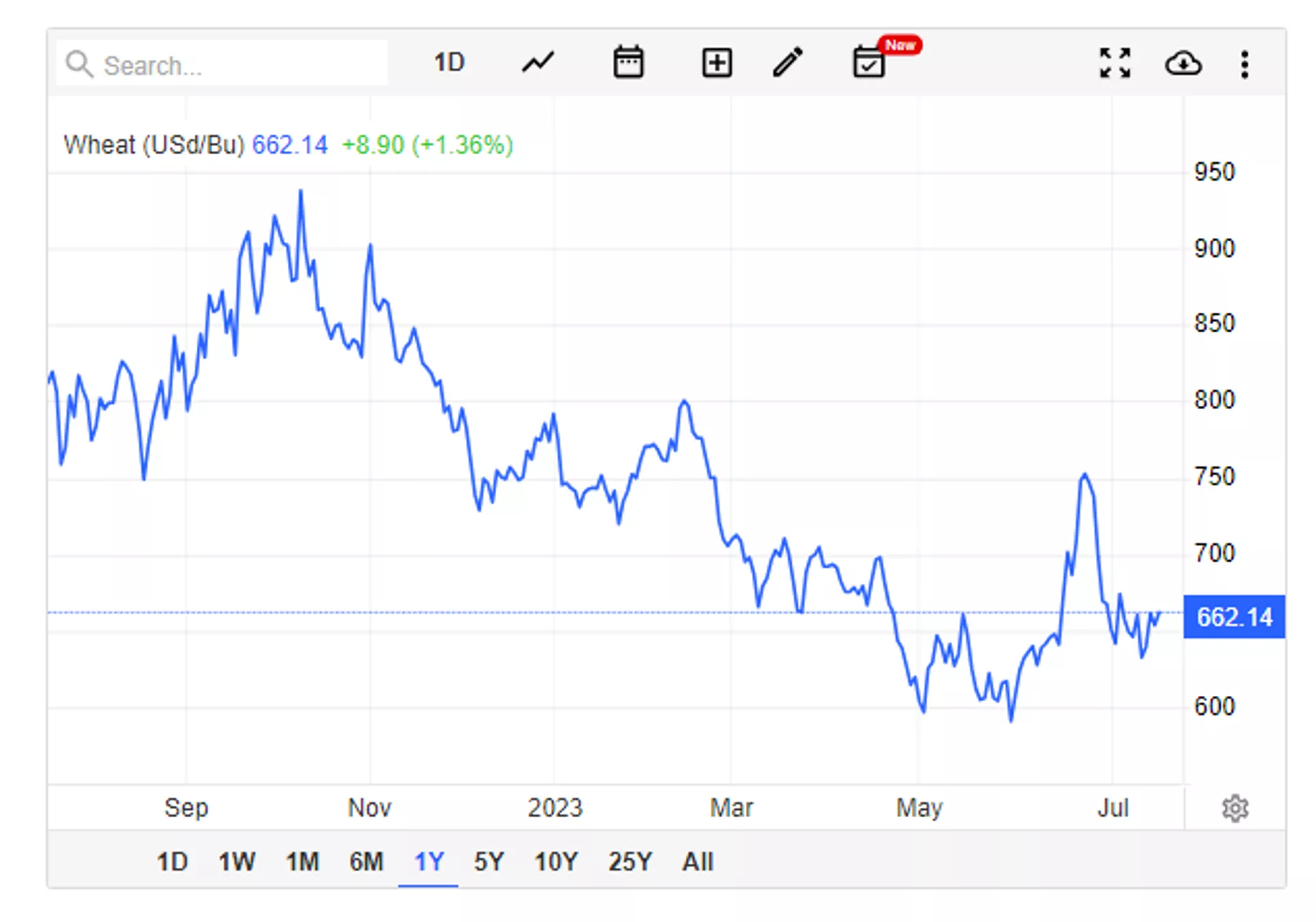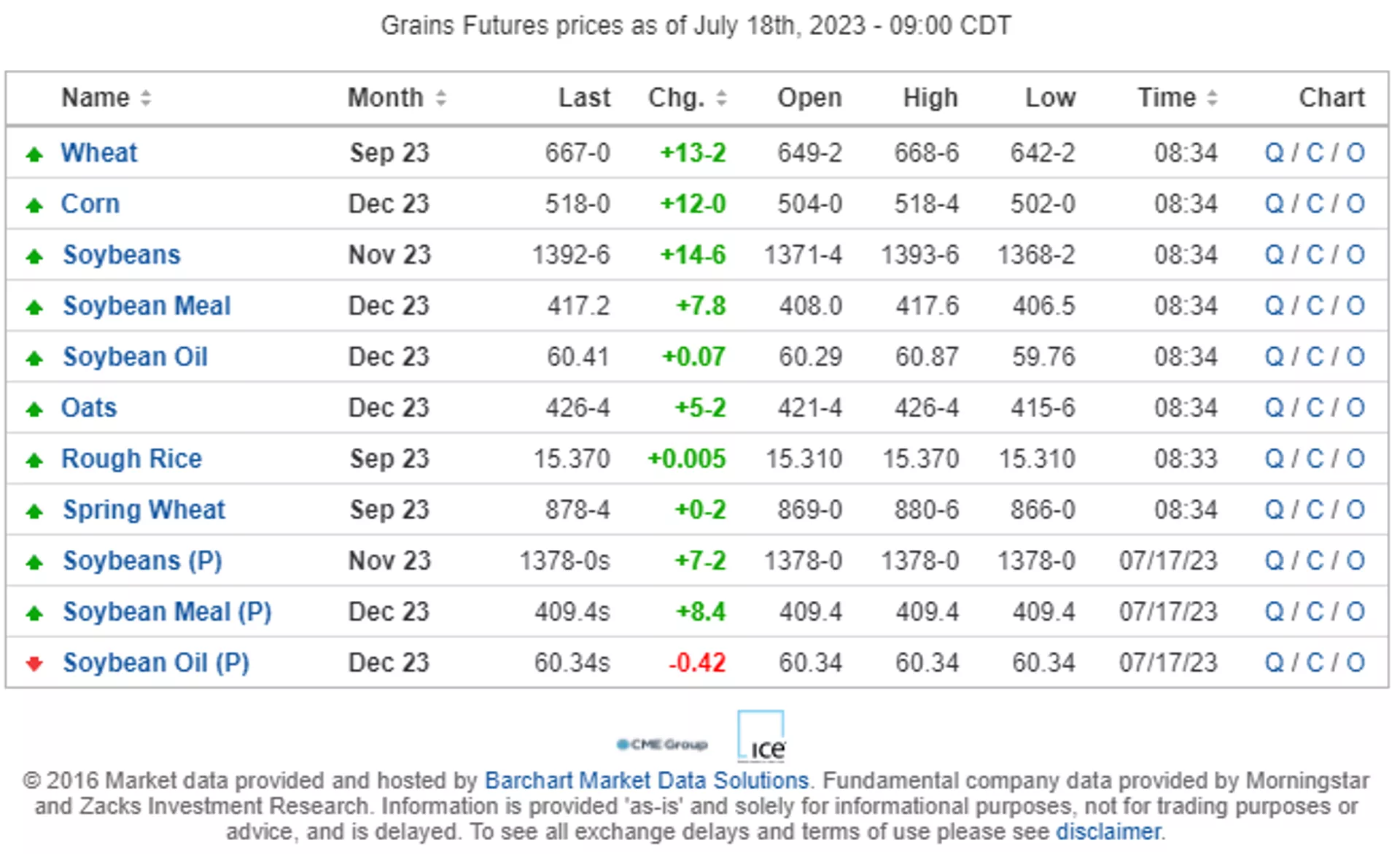Moscow suspended its participation in the year-long Black Sea Grain Deal after Western countries failed to implement their part of the agreement.
In a fit of anger, the White House later slammed Russia’s move as one that would “worsen food security and harm millions.” US Secretary of State Antony Blinken fumed that it was “unconscionable.”
Russia and Ukraine were some of the world’s biggest exporters of grain and other foodstuffs, and Moscow’s decision would force food prices to soar across the globe, WH officials and mainstream media warned.
However, actual dynamics of quotations in the commodity market show relatively minor jitters affecting the costs of the products in question.
Sputnik takes a fact check of current prices of grain, and other food products.

Screengrab of chart showing Wheat Futures trading on July 18, 2023.
© Photo
Wheat steadied at $6.6 per bushel on July 18, which is slightly above the one-month low of $6.3 that was registered on July 12.
US wheat (ZWU3) futures at 12:36 GMT were trading at 662,80 +9,80 (+1,50%)
US Corn (ZCZ3) futures were trading at 516,88 +11,88 (+2,35%)
US soybeans (ZSX3) futures were trading at 1.392,62 +15,62 (+1,13%)
The Black Sea Grain Deal, signed between Russia and Ukraine with the mediation of Turkiye and the United Nations last year, had been set to expire on July 17. The agreement included two parts.
According to part one, the deal was to facilitate agricultural exports from Russia and Ukraine – two of the world’s leaders, jointly accounting for over a third of global cereals exports.
The agreement stipulated a safe corridor through maritime areas controlled by the Russian Navy amid the military operation launched by Moscow in Ukraine in 2022. This part was implemented in full, with tens of millions of tons of grains including corn, wheat, barley, and sunflower oils worth over $5.5 billion exported through safe corridors over the past year.
Part two of the agreement referred to Russian food and fertilizer exports. However, this aspect has barely been implemented, with the United States and the European Union failing to lift or ease sanctions restrictions.
As a result, banks were wary of issuing loans for purchases of Russian grain, insurers refused to provide insurance, fearing reprisals from Washington and Brussels. Furthermore, Russia’s agriculture-focused Rosselkhozbank remained disconnected from SWIFT, resulting in difficulties in international payments. Bearing all the aforesaid in mind, Moscow repeated time and again that it would not extend the agreement unless its demands regarding the second part of the deal were met.
Another thing that should be mentioned is that for all the hue and cry about wanting to feed vulnerable developing nations, the EU emerged as the main beneficiary of the Black Sea Grain Deal: 38% of all grain was sent to European countries; another 30% went to Turkiye; and 24% to China, as per the UN. Only 2% of grain had been supplied to the Global South.







